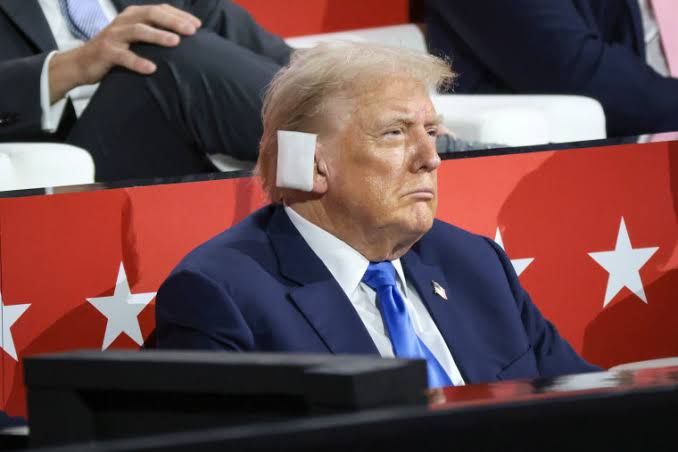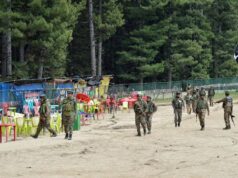Trump should create assassinations commission to uncover hidden truths

By Sonjib Chandra Das
As Donald Trump assumes office following his re-election, a significant opportunity lies before him: the chance to deliver on a long-overdue promise by forming a commission to investigate high-profile assassinations and attempts that have left enduring mysteries.
The need for such a commission goes beyond political considerations, touching on the restoration of public trust in American institutions and resolving questions that have lingered for decades.
By examining the assassinations of President John F. Kennedy, Senator Robert F. Kennedy, and the alleged attempt on Trump’s own life in Butler, Pennsylvania, this commission could provide much-needed clarity and accountability.
The assassinations of the Kennedy brothers and the alleged attempt on Trump’s life represent three of the most contentious and unresolved incidents in modern American history.
Each of these cases has generated extensive speculation, often dismissed as “conspiracy theories,” but they also possess substantial evidence suggesting the official narratives may be incomplete or inaccurate.
President John F. Kennedy’s assassination in 1963 remains one of the most hotly debated events in US history. The official conclusion, as presented by the Warren Commission, is that Lee Harvey Oswald acted alone.
However, subsequent investigations, including the House Select Committee on Assassinations in 1978, found that Kennedy was “probably assassinated as the result of a conspiracy “.
Despite this finding, critical questions about the event remain unanswered, fuelled by classified government documents that continue to be withheld more than 60 years after the fact.
Similarly, the assassination of Robert F. Kennedy in 1968 officially attributes the crime to Sirhan Sirhan, a lone gunman. However, compelling evidence, including reports of multiple gunshots from different directions, raises doubts about whether Sirhan acted alone.
For decades, advocates and researchers have called for a comprehensive re-examination of the RFK case.
The attempt on Trump’s life in Butler, Pennsylvania, adds a modern dimension to this issue. The suspect, Thomas Crooks, is said to have acted independently, yet there has been little public disclosure about the details of the investigation.
A commission could definitively determine whether Crooks had assistance or connections that have not been publicly revealed.
To be effective, the proposed commission must be empowered to operate independently and transparently. It should have the authority to subpoena documents and depose witnesses.
Additionally, it should enlist experts with diverse perspectives to analyse evidence and competing theories.
The final product should be a comprehensive written report, similar to the 1978 House Select Committee’s findings, that provides an unvarnished account of each case.
One of the most critical aspects of the commission’s work would involve addressing the extensive body of classified government records related to these incidents.
The JFK Records Act, passed in 1992, was intended to ensure the release of all documents related to Kennedy’s assassination by 2017. Yet successive administrations have failed to fully comply with the law.
In 2017, Trump delayed the release of many JFK-related documents , citing national security concerns.
Later, the Biden administration went further, deferring the decision to declassify these records to the agencies that hold them, such as the CIA.
This approach effectively neutered the JFK Records Act, leaving the public in the dark. The continued classification of these documents only fuels suspicion.
If, as the government asserts, Lee Harvey Oswald acted alone, there should be no reason to withhold information six decades later.
The same logic applies to records related to Robert F. Kennedy’s assassination and the Butler incident.
By forcing the declassification of all relevant documents, the commission could dispel doubts or confirm suspicions, providing a definitive account of these events.
The unresolved nature of these cases has eroded public trust in government institutions, particularly intelligence agencies. Transparency is essential for restoring faith in these entities.
A well-executed commission could achieve this by either debunking popular conspiracy theories or uncovering malfeasance and ensuring accountability.
For instance, if the commission confirms the official narratives, the public can gain confidence that thorough investigations were conducted and the truth was presented.
Conversely, if wrongdoing or cover-ups are exposed, the responsible parties can be held accountable, signalling that no individual or institution is above scrutiny.
Failure to address these unresolved cases perpetuates a climate of distrust and speculation. Conspiracy theories thrive in the absence of transparency, undermining confidence in democratic institutions. Allowing these questions to remain unanswered sends a message that accountability is secondary to secrecy.
Moreover, neglecting the issue diminishes the significance of historical events like the Kennedy assassinations, leaving future generations to inherit unresolved controversies that could have been definitively addressed. By taking action now, Trump’s administration could prevent these issues from fading into obscurity while still impacting public discourse.
As a figure who has frequently challenged the establishment and championed transparency, Trump is uniquely positioned to pursue this initiative. By following through on his earlier commitment to investigate these cases, he can solidify his legacy as a president willing to confront uncomfortable truths and challenge entrenched interests.
Additionally, Trump has a personal stake in the matter, given the attempt on his life in Butler. A thorough investigation into that incident would not only address his own concerns but also reinforce the importance of examining all political violence, regardless of the target.
The formation of an assassinations commission under Trump’s administration is a necessary and overdue step toward resolving some of the most significant unanswered questions in American history.
By investigating the assassinations of John F. Kennedy, Robert F. Kennedy, and the attempt on Trump’s life, the commission could provide clarity, accountability, and transparency.
In doing so, it would honour the public’s right to know the truth, restore trust in government institutions, and ensure that history is recorded accurately.
Whether it confirms the official narratives or uncovers deeper conspiracies, the commission’s work would represent a victory for truth and justice-values that must always guide the American presidency.




